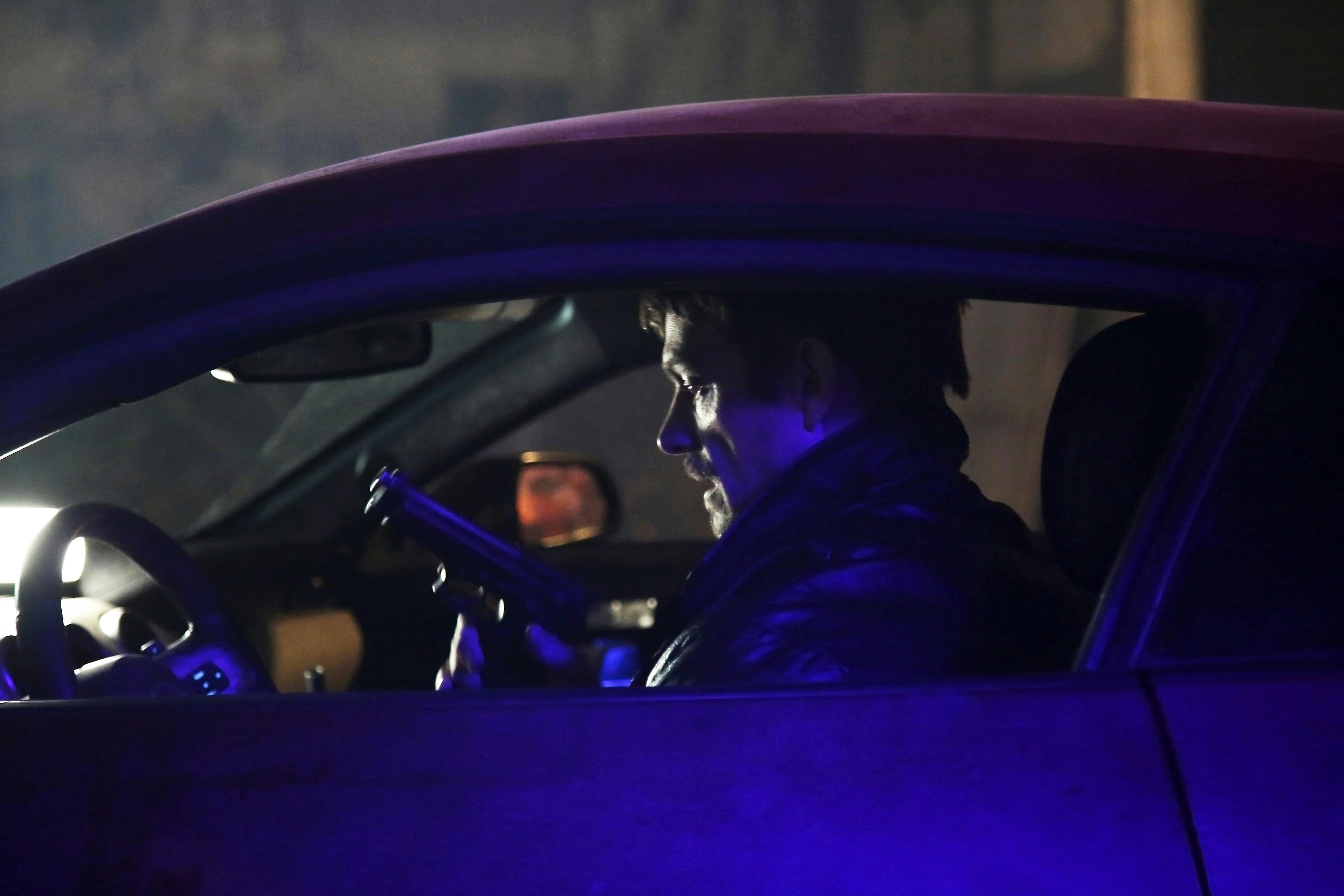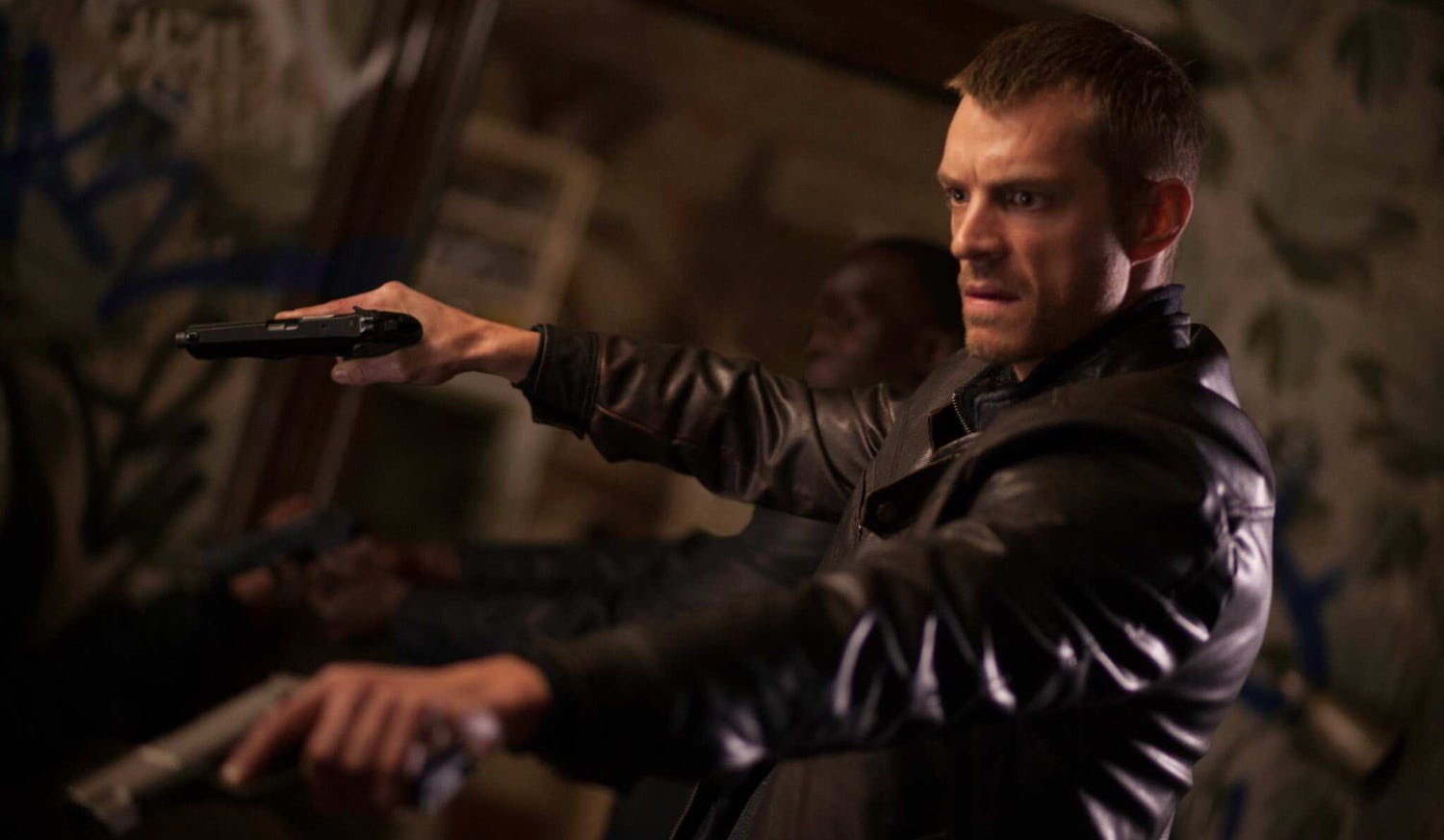
John Woo deserves a better “Welcome Back to Hollywood!” than Silent Night.
The extraordinary Hong Kong filmmaker selected a nearly wordless project for his hiatus-breaking return to the American action scene, which he ghosted after 2003's underperforming Ben Affleck thriller Paycheck. And while Woo’s talent for conducting harmonious bursts of violence delivers the same instinctual fight sequencing that guided him through his classic Chow Yun-fat collaborations and domestic hits like Face/Off, the script’s ambitious erasure of dialogue ends up sinking the movie.
Joel Kinnaman stars in Silent Night as renegade Texan protagonist Brian Godluck, who loses his precious son on Christmas Eve thanks to a gangbanger's stray bullet. Brian pursues the trigger-happy thugs on foot, but takes an intentional round to the throat for his efforts. He's surgically repaired, but is robbed of his ability to speak as a result, unable to vocalize the agony chewing up his insides. Brian's wife Saya (Catalina Sandino Moreno) watches her husband collect empty liquor bottles until she exits the situation, leaving Brian with only one path forward: merciless revenge.
Screenwriter Robert Archer Lynn clearly isn't a fan of complications. Silent Night is as straightforward as they come, without delving into Brian's background or any subplots or obstacles that might alter his plan. Brian follows the same regiment of countless ‘90s dad flicks where the protagonist exercises rigorously in montage, conducts their own surveillance, and then infiltrates criminal organizations like a badass action hero out for a Tuesday stroll. Woo doesn't shy away from the sillier aspects of a snowflake sweater-wearing parent turning into a robotic murder machine, but it's hard to tell if that's how Silent Night intends to be read. Visual cues only translate the drearier "Sad Dad" moods, which doesn't quite match Brian's vehicular stunts or precision gun-fu (against inaccurate enemies in Stormtrooper mode, of course).
Woo successfully delivers not-so-jolly violence that Kinnaman brutishly soldiers his way through with a grimace. An R-rating allows Brian's vigilante punishments to make an impact, from Final Destination-inspired beheadings to blood geysers erupting from headshot holes. Woo’s agile cinematography keeps pace with Kinnaman as he slams his body through wooden furniture and drywall, or beautifully lights warehouse backgrounds behind dressed-to-slay girlfriends blasting submachine guns. There's a hefty dosage of video-game logic that keeps Brian alive — he's Grand Theft Autoing in public with zero repercussions — but under Woo's veteran oversight, we can forgive these absurdities. Choreography packs a punch as Woo works his magic, which shouldn't come as a surprise.

Unfortunately, the eradication of verbal communication is an unignorable bug, never a clever feature. Kinnaman's face conveys regular rage, painful rage, or sweaty rage — but then, out of nowhere, the giggling face of his deceased child appears in a decorative ornament to disturb the vibe. Even more confusingly, no one else around Brian talks, even though they can. Scott Mescudi (aka Kid Cudi) co-stars as a detective on Brian's tail, but they never speak. Nor does Brian's wife Saya, who texts Brian mere rooms apart. Same for the film's villain Playa (Harold Torres), who appears to strictly text his crew. It's an odd mechanic that begs for accentuated storytelling tricks elsewhere, and it makes the packaged experience of Silent Night feel incomplete. Kinnaman appears performatively handcuffed in the role instead of empowered to seek other methods of emotional conveyance, much to the detriment of the dramatic filler when bullets cease whizzing.
Silent Night is a massive gamble of a concept that’s met with the opposite of a bulletproof execution. John Woo's catalog makes him an excellent choice as someone who might be able to crack the code, but he only gets halfway there. The action beats were never going to be in question, nor are they — Woo's still a skilled craftsman when arranging combat. But the film’s silence turns out to be its fatal flaw. Silent Night ends up making for an awkward journey into the bleakest depths of despair, devoid of any firm tonal stance.







